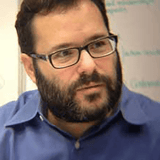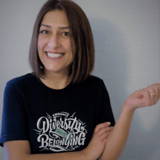Summary
As a Research Strategist, Chris is frequently asked “What is Research Strategy?” Let's start a conversation that defines this practice and develops its approaches. Research Strategy brings processes and frameworks to bear to ensure that an organization’s research activities are deliberate, effective, and aligned with business objectives. Notably, it is not just the purview of research leadership! All of us are already engaged in this work, but we haven’t been talking about it as such. Chris will present his work in this area and invite others to join him in evolving this emerging practice.
Key Insights
-
•
Research strategy is not just for leadership or large enterprises but applicable to individual contributors, startups, and nonprofits.
-
•
The essence of strategy is saying no to certain projects to focus on what drives the most value.
-
•
Many organizations lack a formal research strategy, which limits research's influence and alignment.
-
•
A well-crafted research mission statement serves as a North Star to guide what research is prioritized and what is rejected.
-
•
The questions workshop technique helps surface unknowns and align teams on key research opportunities.
-
•
An assessment matrix facilitates transparent prioritization discussions using factors like effort, risk, value, buy-in, time, and shelf life.
-
•
Measuring research success requires evaluating whether research achieved its aims and if the findings were used.
-
•
Researchers rarely follow up months after projects to check if their insights influenced outcomes.
-
•
Using a language of investment and rate of return helps executives understand and support research priorities.
-
•
Building a community and shared vocabulary is critical to evolving research strategy practice, similar to how research operations matured.
Notable Quotes
"We deserve better than doing research that is a waste of our time and talents."
"If we’re not able to talk about research as an investment that de-risks decisions or drives innovation, maybe we don’t deserve a seat at the table."
"Strategy is choosing what not to do, and we need to get better at saying no."
"You have a strategy either by design or by default, and the default is usually whatever is most politically expedient."
"What are you willing to say no to? That’s the heart of having a research strategy."
"The questions workshop is about turning unknowns into questions and aligning the team around them."
"The goal of a prioritization framework is not to answer questions but to facilitate discussion, surface issues, and achieve alignment."
"Were the research findings used? That is a metric we can and should measure."
"The buy-in from stakeholders is critical and affects the potential success of research projects."
"Saying no is saying yes to something else where the investment has a greater rate of return."
Or choose a question:
















More Videos

"Share everything, own nothing but credit everyone."
Zariah CameronReDesigning Wellbeing for Equitable Care in the Workplace
September 23, 2024

"If anything’s on fire, go fix it is a perfectly valid top priority."
John Cutler Harry MaxPrioritization for designers and product managers (1st of 3 seminars) (Videoconference)
June 13, 2024

"Every time somebody purchased a domain name, I earned a commission. Over three to four years, I earned over $100,000 as a high school student."
Nick CochranGrowing in Enterprise Design through Making Connections
June 3, 2019

"You should assess feedback before making decisions; implementing feedback right away can cause the wrong solution or disruptions."
Deanna SmithLeading Change with Confidence: Strategies for Optimizing Your Process
September 23, 2024

"We’re now looking to help legislators think about digital outcomes as they draft new laws and regulations."
Magdalena ZadaraZero Hour: How to Get Far Quickly When Starting Your Digital Service Unit Late
November 16, 2022

"I’ve never done this before. I’m going to be learning as I go and I’m going to share everything I learn with you."
Nova Wehman-BrownWe've Never Done This Before
June 4, 2019

"To be truly impactful, we need to actively participate in product design sprints, ideation, and key strategy meetings."
Liwei DaiThe Heart and Brain of the AI Research
March 31, 2020

"Flexibility is the network’s ability to reconfigure itself, scalability is ability to expand or shrink, survivability is withstand attacks because codes exist across nodes."
Gordon Ross12 Months of COVID-19 Design and Digital Response with the British Columbia Government
December 8, 2021

"Listening to the 10% truth means acknowledging a bit of what they say even if you’re irritated."
Tutti TaygerlyMake Space to Lead
June 12, 2021
















